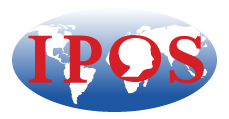During these difficult COVID – 19 times, IPOS remains committed to promoting the highest standards of comprehensive cancer care. More than ever, we are united in our mission to promote global excellence in psychosocial care for people affected by cancer through partnerships, research, public policy, advocacy and education.
We wish to highlight the additional burden brought to patients with cancer worldwide of having to cope with a pandemic. Patients and families are frightened about not receiving proper treatment as resources are stratified according to priorities. Isolation directives to mitigate infection risk means some patients cannot access supports to address important physical, psychological, social, and spiritual needs. There are fears about contracting COVID-19 when one’s immunity system is already low. Patients struggling with common physical symptoms related to their cancer or treatments may be frightened of having contracted the virus. They can be afraid of coming to the hospital, now perceived as a potential risk for their health. They may present later for conditions requiring immediate attention. They may not be able to be accompanied during treatments and important surgical procedures. Healthcare may be fragmented, as many disciplines work from home and treatments are outsourced to community settings. Patients that are hospitalized may not be allowed to have visitors, and those at the end-of-life may not be visited by their circle of family and friends, as travel bans, and hospital restrictions, prevail. Some patients may feel that they are abandoned as they are no longer benefitting from the previous reassuring structure of the oncology setting. Others feel normalized as now everyone is socially isolated and staying at home. When they had previously considered themselves as different, being at home is now a new normal, with its de-stigmatizing effect.
We need to flexibly develop services to respond to the complex needs of patients throughout their cancer trajectory from discovery of symptoms to end-of-life care and bereavement. We have seen a rapid uptake of telemedicine and tele-conferencing allowing for needed cancer care and follow-up of oncology patients and their families. Patients and their families can now have access to cancer care from their very homes. Guidelines for telemedicine and tele-conferencing can be found here: https://www.psychiatry.org/psychiatrists/practice/telepsychiatry/blog/apa-resources-on-telepsychiatry-and-covid-19
As patients are presenting less to the hospital, it becomes crucial to develop new means of identifying their distress. There have been multiple initiatives of patient portals allowing for screening for distress at a distance, which appears particularly important in our pandemic times to make sure needs are met. Guidelines for screening for distress can be found here:
http://www.virtualhospice.ca/Assets/Distress-%20CPAC_20150713161546.pdf
https://jnccn.org/view/journals/jnccn/17/10/article-p1229.xml
Cancer care needs to be equitable. Face-to-face contact via telemedicine and screening for distress via a portal are not available for patients that do not have a computer or internet access, which may create further inequities in symptom management, functional rehabilitation, psychosocial care, and survival. We need to develop innovative solutions and services to fill this important gap in partnership with companies and other stakeholders.
Healthcare providers have needed to readjust to a number of stressful changes in the organization of their workforce and of the healthcare system. Caring for COVID-19 patients, on the backdrop of a system with limited resources to protect them, creates a stressful context fertile to burnout and vicarious traumatisation. More than even, healthcare settings need to develop ways to nurture their workforce. Guidelines for healthcare workers ca be found here: https://www.psychiatry.org/news-room/apa-blogs/apa-blog/2020/02/coronavirus-and-mental-health-taking-care-of-ourselves-during-infectious-disease-outbreaks
For resources on stress and coping during the coronavirus crisis, please visit: https://www.cdc.gov/coronavirus/2019-ncov/daily-life-coping/managing-stress-anxiety.html?CDC_AA_refVal=https%3A%2F%2Fwww.cdc.gov%2Fcoronavirus%2F2019-ncov%2Fprepare%2Fmanaging-stress-anxiety.html
For resources on caring for children, please visit: https://www.cdc.gov/coronavirus/2019-ncov/daily-life-coping/children.html
Other resources:
Dr. Melissa Henry
Associate Professor, Faculty of Medicine, Department of Oncology, McGill University
FRQS Clinician-Scientist, McGill University
Director, Psycho-Oncology Research Group
Lady-Davis Institute for Medical Research, Jewish General Hospital
